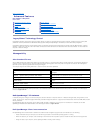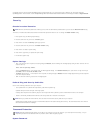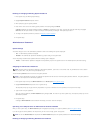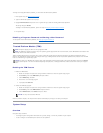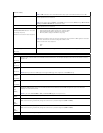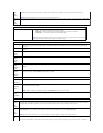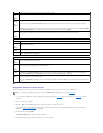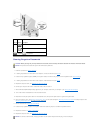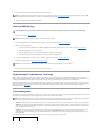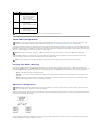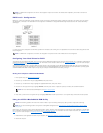
(Internal default)
NOTE: If USB is selected, ensure that USB Controller setup option under Onboard Devices is set to On.
SATA 0 through
SATA n
Identifies and enables and disables the drives attached to the SATA connectors on the system board and
lists the capacities for the hard drives.
NOTE: These options appear as SATA 0 through SATA 3 for the mini tower, SATA 0 through SATA 2 for the
desktop, and SATA 0 and SATA1 for the small form factor.
External SATA
Identifies and enables and disables the drives attached to the eSATA connector on the system board and
lists the capacities for the hard drives.
SATA Operation
(RAID Autodetect/AHCI default for mini tower
and desktop computers)
(AHCI default for small form factor computers)
Options for mini tower and desktop computers:
l RAID Autodetect/AHCI (RAID if signed drives, otherwise AHCI)
l RAID Autodetect/ATA (RAID if signed drives, otherwise ATA)
l RAID On (SATA is configured for RAID on every boot)
NOTE: When in Autodetect mode, the computer configures the drive as RAID if a RAID signature is detected
on the drive. Otherwise the drive will be configured as AHCI or ATA.
Options for small form factor computers:
l AHCI
l ATA
SMART Reporting
(Off default)
This setting determines whether integrated drive errors are reported or not during system startup.
Onboard Devices
Integrated
NIC
(On default)
Enables or disables the integrated NIC controller. Settings are Off, On, On w/ PXE, or On w/RPL. When the On w/ PXE or the On w/RPL
setting is active, if a boot routine is not available from the network server, the computer attempts to boot from the next device in the boot
sequence list.
Integrated
Audio
(On default)
Enables or disables the onboard audio controller.
USB
Controller
(On default)
Enables or disables the internal USB controller. No Boot enables the controller but disables the ability to boot from a USB device.
NOTE: Operating systems with USB support will recognize USB floppy drives regardless of the No Boot setting.
USB 0
through 5
(On default)
Enables or disables the USB ports on the back of the computer.
Front USB
Ports
(On default)
Enables or disables the front USB ports.
LPT Port
Mode
(PS/2
default)
Determines the mode of operation of the internal parallel port. AT configures the port for AT compatibility. PS/2 configures the port for PS/2
compatibility. EPP configures the port for the Enhanced Parallel Port bidirectional protocol. ECP configures the port for the Extended
Capability Port bidirectional protocol.
NOTE: If you set the LPT Port Mode to ECP, the LPT Port DMA appears in the option menu.
LPT Port
Address
Determines the address that the built-in parallel port uses.
Serial Port
#1
(Auto
default)
Determines how the serial port operates.
Auto, the default setting, automatically configures a connector to a particular designation (COM1 or COM3).
Serial Port
#2
(Auto
default)
Determines how the serial port operates.
Auto, the default setting, automatically configures a connector to a particular designation (COM2 or COM4).
PS/2 Mouse
Port
Enables or disables the integrated legacy PS/2 mouse controller.
Video
Primary
This setting specifies which video controller is primary when there are two video controllers available (PCI, Onboard, Auto, and PEG). This




